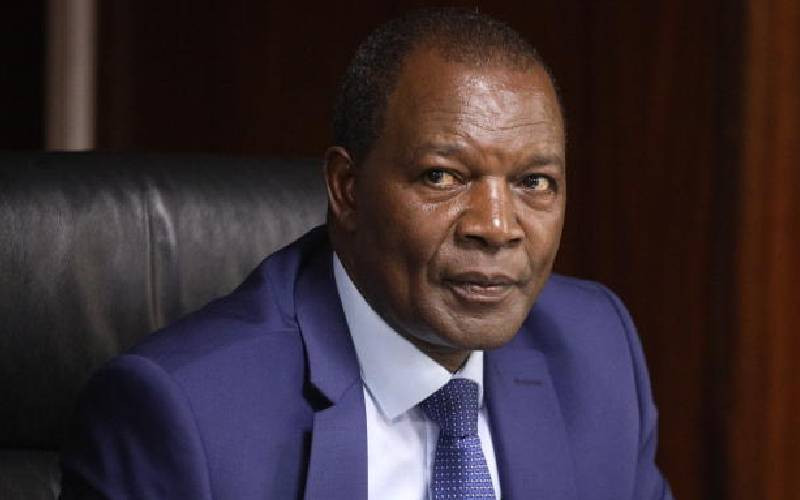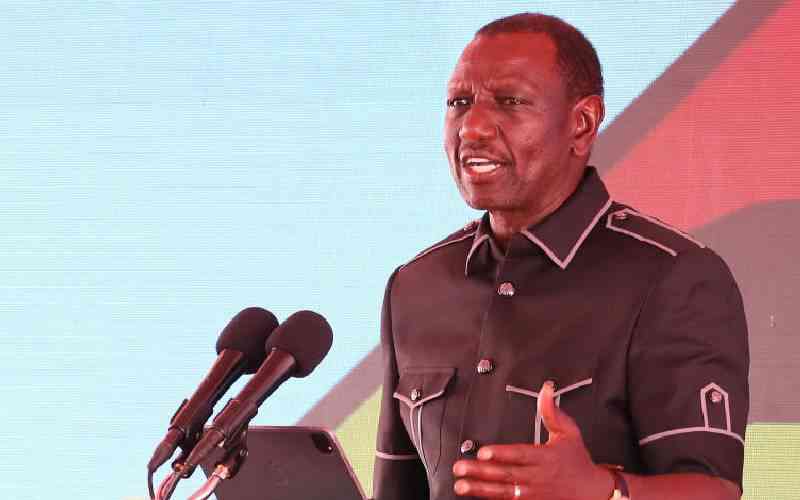By Alex Ndegwa
Parliament has upheld pre-election coalitions after amending legislation to regulate political parties during an acrimonious sitting marred with 2012 succession politics.
The rejection of the attempt to outlaw pre-election coalitions was seen as a triumph in Parliament by the so-called G-7 alliance over Prime Minister Raila Odinga’s ODM.
The acrimonious debate on the proposed amendments to the Political Parties Bill reflected the political camps with members’ support or rejection of proposals apparently influenced by loyalty to the respective camps.
Gichugu MP Martha Karua retorted that the Political Parties Bill had been watered down to the extent it was not worth the title.
Karua said she would rather it be renamed the "G7 Political Parties Act." The defeated amendment by the Constitutional Implementation Oversight Committee (CIOC) sought to entirely delete clause 10 of the Bill, which provided for pre-election coalitions.
Its proponents backed coalitions formed only after the elections citing the instability of the Narc coalition in 2002 and the instability of the grand coalition Government.
But opponents countered the move violated the Constitution, which guaranteed freedom of association. They argued the Constitution envisaged such coalitions because it stated the majority leader could be from a coalition of parties if no party had the numbers.
The contentious amendment was defeated after a verbal vote. Its proponents could not raise the mandatory 20 members to force a physical count.
Verbal vote
This paved the way for an amendment by Justice Minister Mutula Kilonzo, which was moved by Energy Minister Kiraitu Murungi, which sanctioned both pre and post-election coalitions. The amended provision reads: "Two or more political parties may form a coalition before or after an election and shall deposit the coalition agreement with the registrar."
It adds: "A coalition agreement entered into before an election shall be deposited with the registrar at least three months before that election."
Clause 3 further stipulates a coalition agreement entered into after an election shall be deposited with the registrar within 21 days of the signing of the coalition agreement.
During the stormy session, Gwassi MP John Mbadi was thrown out of the Chamber after an altercation with Yatta’s Charles Kilonzo.
CIOC members Rachael Shebesh and Ababu Namwamba also attempted to strip Turkana Central MP Ekwe Ethuro of the role to lead amendments on behalf of the committee.
They claimed Ethuro was not faithful to the cause and had voted against the committee’s amendment.
Temporary Speaker Joyce Laboso said there was no way to determine which way Ethuro had voted during the verbal vote.
During heated debate, Nairobi Metropolitan Minister Njeru Githae said: "We should not prohibit formation of coalition governments."
Shebesh said: "The committee was of the view we should encourage parties to compete. Coalitions should be formed after an election if the winning party doesn’t garner enough seats."
 The Standard Group Plc is a multi-media organization with investments in media
platforms spanning newspaper print operations, television, radio broadcasting,
digital and online services. The Standard Group is recognized as a leading
multi-media house in Kenya with a key influence in matters of national and
international interest.
The Standard Group Plc is a multi-media organization with investments in media
platforms spanning newspaper print operations, television, radio broadcasting,
digital and online services. The Standard Group is recognized as a leading
multi-media house in Kenya with a key influence in matters of national and
international interest.
 The Standard Group Plc is a multi-media organization with investments in media
platforms spanning newspaper print operations, television, radio broadcasting,
digital and online services. The Standard Group is recognized as a leading
multi-media house in Kenya with a key influence in matters of national and
international interest.
The Standard Group Plc is a multi-media organization with investments in media
platforms spanning newspaper print operations, television, radio broadcasting,
digital and online services. The Standard Group is recognized as a leading
multi-media house in Kenya with a key influence in matters of national and
international interest.









